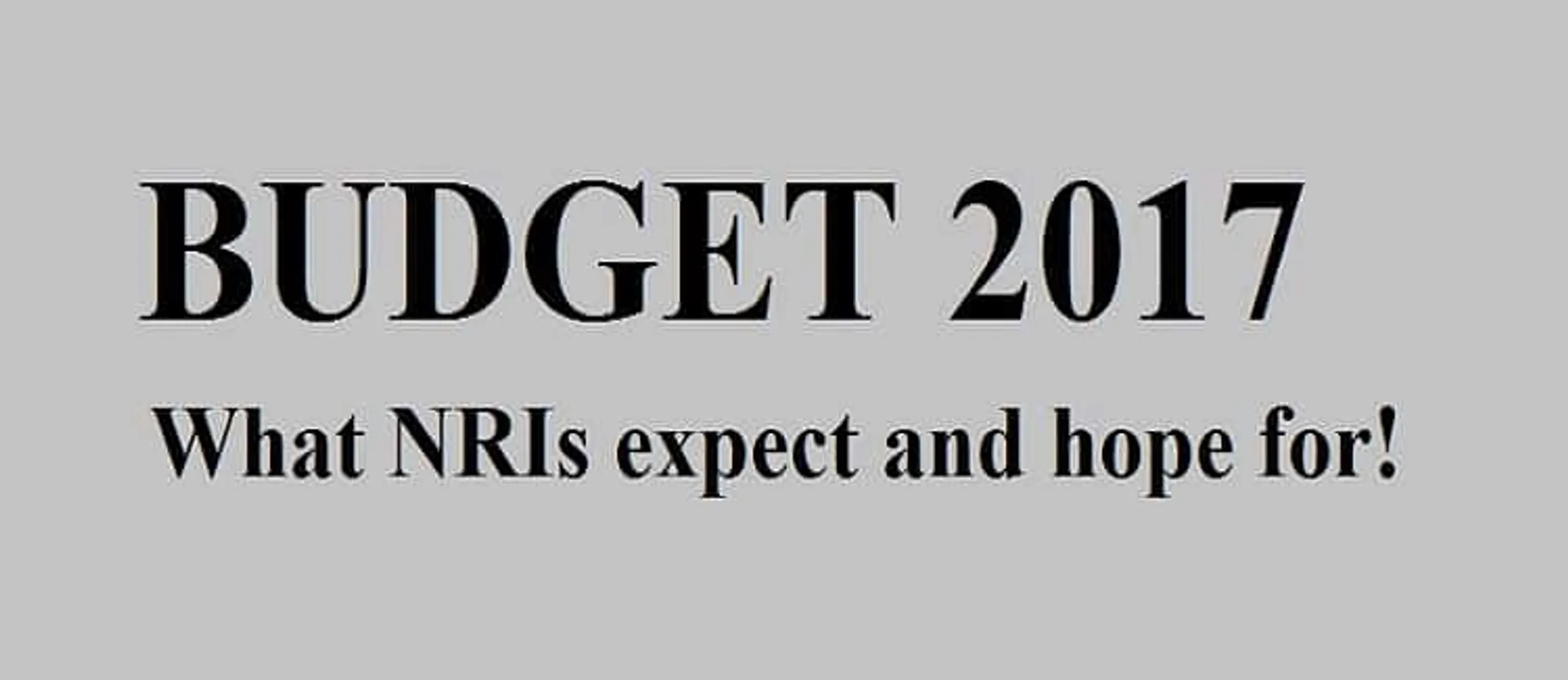The waves that the demonetisation policies created across the NRI community across the globe in November, 2016 have laid grounds for anxiety over the next major step that the Indian government will present – the Budget, 2017. Given that the budget is to be presented in just a few days there is a lot of speculation about what the NRI community will face in terms of the rules on taxation and other aspects.
On the whole, it is generally perceive that the ongoing approach of policies like the demonetisation, the GST and other major steps in the past one year or so, could help create higher tax compliance and hopefully, a wider tax base too. One of the major expectations of people from this year’s budget is lower tax rates.
People expect that the Income Declaration Scheme of the Modi government, announced in 2016, will add to the revenue collection of the government. If one were to assume that there is close to Rs 75,000 crores declared as black money that means at tax rates of about 45%, almost Rs 35000 would get collected as taxes! The government also hopes to gain significant amounts from the Pradhan mantra Garib Kalyan Yojana 2016 (PMGKY).
Overseas citizens perhaps wait with a tentative wish-list in mind. Amongst the major steps that the NRIs expect to be taken in the current budget, the following stand out prominently.
- A Rational Tax Refund procedure:
- Tax filing has been electronic for some time now.
- However it is not so easy to get the refunds tracked or even get these done easily.
- If anybody were to be in a position to have a refund of more than Rs 50,000 he would have to collect it in paper format, meaning that somebody has to collect these cheques on his behalf and also get them credited within the designated time.
- Sometimes, NRIs might not have accounts in India and in such cases it would be very tough for them to get access to the money.
- It is impossible to get a direct remittance done to foreign bank accounts of NRIs.
- It is important to address the above complication. There should be ease of transfer of the money through wire transfer or other electronic method.
- TRC or Tax Residency Certificate –
- This is a major complexity created in the system.
- TRC is a certificate required from the Tax Authorities of the country where the NRI resides so that he can qualify for the benefits under the ambit of the country’s tax treaties with India.
- To add to the complications, Indian Tax authorities usually demand the TRC while acting on the tax relief.
- If NRIs could be given relief on this front and have the concession of only producing the passports or the resident country’s tax return to claim their tax relief.
- Taxation at par –
- NRIs fairly expect to be treated at the same level with residents.
- While resident Indians pay the TDS (tax deducted at source) only on incomes earned beyond a certain level, this is not so with Non-Residents.
- Overseas citizens have been hoping that the system is modified to impose same rates for all, irrespective of their status in terms of residency.
- In addition, NRIs hope that the rules for them to pay taxes on Capital gains are also revised and modified to suit their comfort levels.
- Property Tax Laws –
- Tax laws are not clear regarding the sale of property in India.
- Any payment that an NRI receives from any buyer gets scrutinised for TDS rates that could be as high as 20-31%.
- Further, there are some aspects that NRIs would do well to remember while buying Property in India-
- If a person owns more than one property in India, as per Indian laws, only one property can be considered self-occupied for the purpose of taxation
- All other property will be considered to be on rent and an NRI will be liable to pay tax on such properties
- The same rule applies for inherited property too.
While NRIs are waiting and hoping for major considerations in the forthcoming budget, it remains to be seen how much is actually implemented.

